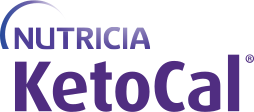When your child has seizures and is starting a medical ketogenic diet, it’s important to help him or her to understand and cope as much as possible. But it can be challenging to discuss complex medical information with young children in ways they can grasp. This post provides some tips and resources to help you explain epilepsy and medical ketogenic diets to your little one.
Keep It Simple
Try to keep things as simple as possible. You want to be open and honest, but too many details can be confusing and create unnecessary anxiety for a young child. You know your child best and are the best judge of how much they can understand. It may be helpful to let your child guide the conversation. Provide basic information and encourage your child to ask questions. Let the questions guide you with how much information to provide.
Use Kid-Friendly Terms
Sometimes children need kid-friendly comparisons to understand a concept. For example, you might tell your child “You’re starting a magic diet (or a superhero diet, or a princess diet) because it helps some kids’ brains to feel better so that they don’t have seizures. You won’t be able to eat some of your favorite foods for a while, but we will make special magic (or superhero, or princess) foods just for you that are just as tasty.” Using terms like these can help you to communicate to your child that he or she will be eating different foods and that they can do it because he or she is strong like Spiderman (if interested in superheroes) or determined like Cinderella (if interested in princesses). Again, you know your child best so tailor your explanation to his or her interests.
Use Children’s Stories
Some parents find storybooks are helpful in communicating complicated information to children and fortunately, there are many children’s books about special diets or epilepsy. Here are some that you might find useful:
- Krazy for Keto – A book written about a young boy’s successful journey on the medical ketogenic diet
- Gordy and the Magic Diet– This book is a great story for children on any type of special diet
- The Robot Who Couldn’t Eat Triangles– This book, which comes in both English and Spanish, helps children to accept that it’s okay to eat differently
- Grace’s Magic Diet-This awesome book was written and illustrated by Grace’s family to help prepare her to start the medical ketogenic diet. You can download and print it at home for free!
- Mommy, I Feel Funny! A Child’s Experience with Epilepsy
- Let’s Learn with Teddy about Epilepsy
- Wally The Whale: A Tale About a Whale With Seizures
- Taking Seizure Disorders to School: A Story About Epilepsy
- The Great Katie Kate Explains Epilepsy
Reassure Them That They Are Not Alone
Even at an early age, children are sensitive to feeling different from their peers. Reassure your child that they should not be embarrassed about having seizures or eating differently. Point out that many people have health issues and that they come in many forms. Some kids have breathing problems, others have tummy troubles, and others have seizures. Similarly, many kids have conditions that require them to follow a special diet. For example, some children have food allergies that limit the types of foods that they can eat, and others are on a medical ketogenic diet for epilepsy, which also limits the types of foods that they can eat.
For more information on talking to your child about epilepsy, check out some of these useful sites:
- The Epilepsy Foundation’s tips talking to children about epilepsy
- This YouTube video from Children’s Hospital of Colorado features kids explaining epilepsy to other kids
How did you explain epilepsy and the medical ketogenic diet to your child? What advice would you give to other parents in your shoes?
A ketogenic diet used for the dietary management of drug-resistant epilepsy should be used under medical supervisions.
©2024 Nutricia North America. All Rights Reserved.

